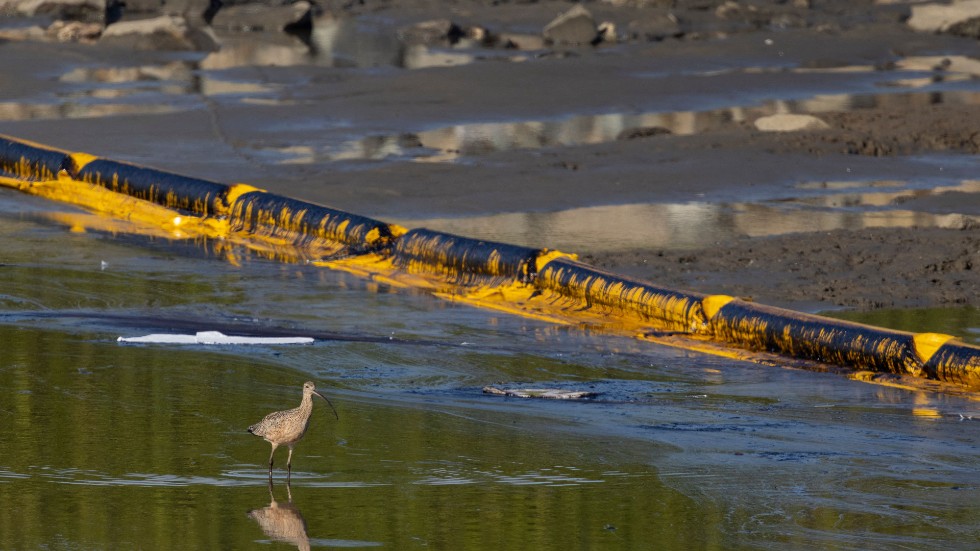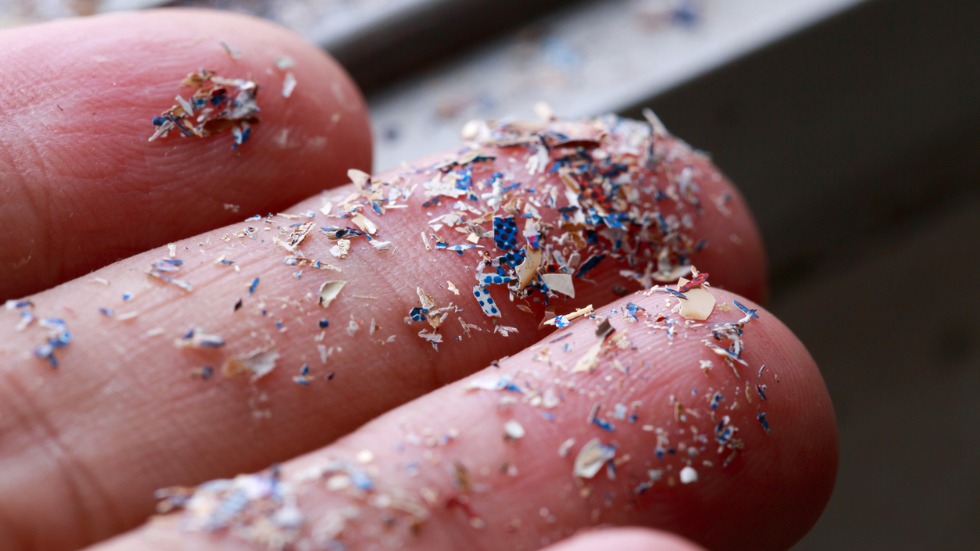Overnight Energy & Environment — Company settles longtime oil spill for $43M
Welcome to Thursday’s Overnight Energy & Environment, your source for the latest news focused on energy, the environment and beyond. Subscribe here: digital-staging.thehill.com/newsletter-signup.
Publisher’s Note: Overnight Energy will not publish Friday in observance of the Christmas holiday.
Today we’re looking at a $43 million settlement over the longest-running American oil spill, a possible lawsuit over the Interior Department’s alleged failure to protect polar bears, and a study suggesting another unfortunate side effect of microplastics.
For The Hill, we’re Rachel Frazin and Zack Budryk. Write to us with tips: rfrazin@digital-staging.thehill.com and zbudryk@digital-staging.thehill.com. Follow us on Twitter: @RachelFrazin and @BudrykZack.
Let’s jump in.
Energy company will pay $43M for oil spill

Taylor Energy, the company behind the United State’s longest-running oil spill, has agreed to pay more than $43 million in removal costs, civil penalties and natural resource damages since its pipeline in the Gulf of Mexico began leaking in 2004.
Taylor Energy would also be transferring a $432 million trust fund to the Department of Interior, according to a proposed consent decree announced by the Department of Justice on Wednesday.
Additionally, the Louisiana gas and oil company is required under the settlement to dismiss three existing lawsuits it filed against the government. As a part of the settlement, Taylor Energy does not “admit any liability to the United States or the State arising out of the MC-20 Incident.”
What’s next? The proposed consent decree is subject to a court’s review and approval.
The settlement comes more than a year after the United States sued the gas and oil company for a historic oil spill that has dumped hundreds of thousands of gallons in the Gulf of Mexico. The oil spill, which continues to this day, was a result of a production platform that was crushed during Hurricane Ivan.
Nicole LeBoeuf, the director of National Oceanic and Atmospheric Administration’s National Ocean Service, said in a statement that the “settlement represents an important down payment.”
“Despite being a catalyst for beneficial environmental technological innovation, the damage to our ecosystem caused by this 17-year-old oil spill is unacceptable,” U.S. Attorney Duane A. Evans for the Eastern District of Louisiana added in a statement.
Read more about the settlement here.
Group to sue for failure to protect polar bears

The Center for Biological Diversity on Wednesday filed a notice of intent to sue the U.S. Interior Department, alleging it has not properly protected polar bears from encroachment on their habitat by the oil industry.
Oil company 88 Energy received approval from the outgoing Trump administration for its five-year Peregrine Exploration Program, an oil and gas exploration project in Alaska’s National Petroleum Reserve. The Biden administration would still have to sign off on the drilling of new wells.
What’s the issue? The project would involve extensive noise pollution in polar bear habitats, according to the environmental organization. This includes construction of air strips and roads and “nearly constant” traffic on roads and airways, according to the notice.
The notice of intent, which names both the Interior Department and the Bureau of Land Management, is required 60 days ahead of a formal lawsuit under the Endangered Species Act (ESA).
The greenhouse gas emissions associated with the project, meanwhile, would also directly affect the bears’ habitat by contributing to the melting of Arctic sea ice. The notice cites one study indicating that each metric ton of carbon dioxide emissions equates to the loss of some three square meters of September Arctic sea ice.
Read more about the notice here.
Microplastics may cause bowel disease: study

Individuals affected by inflammatory bowel disease (IBD) have more microplastics in their feces than healthy controls, a new study has found.
Recent estimates indicate that people consume tens of thousands of microplastics — those that are less than 5 mm in length — from a variety of sources, ranging from bottled water to food to air, according to the study, published in Environmental Science & Technology.
While the health consequences of such consumption have long been unknown, researchers at Nanjing University in China have found that the development of IBD could be related to the ingestion of these fragments, a statement accompanying the study said.
IBD, which includes Crohn’s disease and ulcerative colitis, is characterized by chronic inflammation of the digestive tract and can be caused or exacerbated by dietary choices and by environmental factors, according to the study. Meanwhile, the incidence of IBD continues to rise around the world.
“For the first time, this study reveals that there is a significant difference in the concentration of [microplastics] in feces from IBD patients and healthy people,” the authors stated.
The researchers obtained fecal samples from 50 healthy people — 30 male and 20 female — and 52 people — 31 male and 21 female — with IBD from different geographic regions of China, ultimately finding that the samples from IBD patients contained about 1.5 times more microplastic pieces per gram than those from the healthy subjects. Individuals with more severe IBD symptoms also tended to have higher levels of fecal microplastics, according to the study.
Read more about the study here.
WHAT WE’RE READING
- Burnout, expertise gaps plague EPA chemicals office, E&E News reports
- Road Salt Is Wreaking Havoc On Our Drinking Water and the Environment, Study Says, Popular Mechanics reports
- FERC: Virginia pipeline’s environmental contractor has ‘conflict of interest,’ The Chesapeake Bay Journal reports
- Brazil shuts illegal timber schemes, sheds light on Amazon logging, Reuters reports
And finally, something offbeat and off-beat: A Christmas miracle.
That’s it for today, thanks for reading. Check out The Hill’s energy & environment page for the latest news and coverage. We’ll see you Monday.
Copyright 2024 Nexstar Media Inc. All rights reserved. This material may not be published, broadcast, rewritten, or redistributed..







